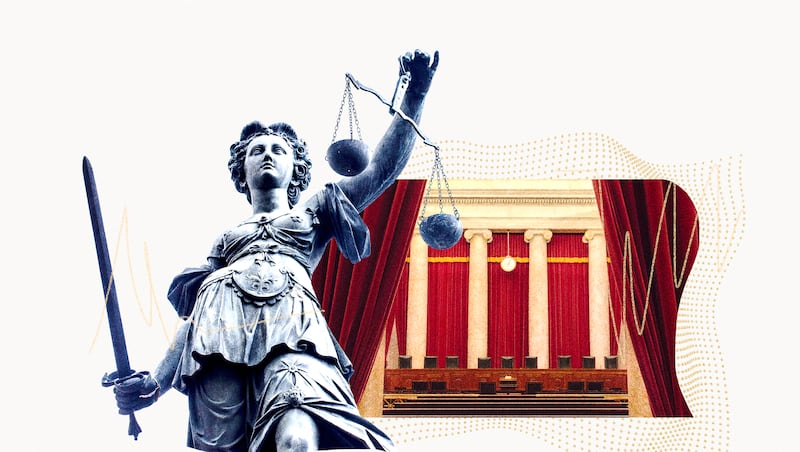The Supreme Court on Monday enters its home stretch, the final period of oral arguments before the justices turn their full attention to completing all the rulings expected to be issued before the end of June.
Over the next two weeks, the court will consider abortion in emergency rooms, criminal charges against Jan. 6 rioters and the scope of presidential immunity, among other high-profile issues.
Here’s what you need to know about the four most notable cases on the Supreme Court’s April schedule:
Fischer v. United States
-
Oral arguments: Tuesday, April 16.
-
Key question: Was it legally sound to charge hundreds of Jan. 6 rioters with violating a federal law prohibiting obstructing or impeding official proceedings?
-
Lower court ruling: More than a dozen lower court judges have ruled that it was appropriate to use that federal statute to charge Jan. 6 rioters. But in Fischer v. United States, a district court judge ruled that the law shouldn’t apply in the context of Jan. 6 since it was designed to address evidence tampering. The U.S. Court of Appeals for the District of Columbia Circuit then reinstated the charge, per SCOTUSblog.
-
Why it matters: If the Supreme Court rules that the federal statute in question should not apply to Jan. 6 rioters, prosecutors across the country would likely need to revisit more than 100 cases and change their approach to hundreds of others. Such a ruling would also affect the election interference case against former President Donald Trump, who, among other things, is charged with “conspiring to and actually obstructing the certification of the election,” according to The Washington Post.
City of Grants Pass v. Johnson
-
Oral arguments: Monday, April 22.
-
Key question: Do bans on public camping become cruel and unusual punishment when they’re enforced against men and women who are involuntarily homeless?
-
Lower court ruling: The lower courts ruled against the city of Grants Pass, Oregon, saying that its anti-camping law amounts to cruel and unusual punishment because there aren’t enough beds at shelters in the area to serve the homeless population.
-
Why it matters: The case could affect how cities nationwide respond to homelessness.
Moyle v. United States
-
Consolidated with: Idaho v. United States.
-
Oral arguments: Wednesday, April 24.
-
Key question: When a state’s near-total abortion ban conflicts with federal law regarding emergency treatment for pregnant women, which policy wins out?
-
Lower court ruling: The Biden administration, which claims that the Emergency Medical Treatment and Labor Act outweighs Idaho’s abortion law, initially won in front of a federal district court, which put Idaho’s law on hold. But then federal officials lost in front of a three-judge panel at the 9th Circuit Court of Appeals, before winning again when the full court considered the issue.
-
Why it matters: In January, the Supreme Court agreed to weigh in on the dispute and overturned the existing stay, allowing Idaho’s abortion ban to take effect. The court’s eventual decision will hold significant consequences for abortion policy nationwide, potentially deepening the significance of the June 2022 ruling that overturned Roe v. Wade and returned policymaking power to the states.
Trump v. United States
-
Oral arguments: Thursday, April 25.
-
Key question: Can former President Donald Trump be prosecuted for his alleged role in efforts to overturn the 2020 election?
-
Lower court ruling: A federal district court and the D.C. Circuit rejected Trump’s claim “that a former president cannot be prosecuted unless he has first been impeached by the House and convicted by the Senate,” per SCOTUSblog.
-
Why it matters: This case on the scope of presidential immunity holds significant consequences not just for ongoing lawsuits against Trump but also for the 2024 presidential election and American politics as a whole. Trump’s camp has argued that a ruling against him would disrupt future presidents’ ability to do the job well, while the former president’s opponents say it’s essential to hold him accountable for his alleged misdeeds.
